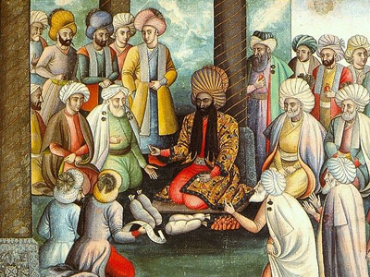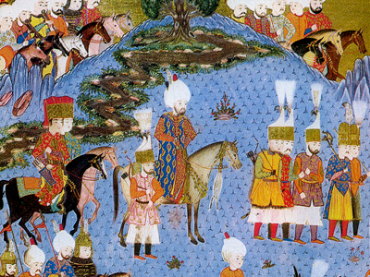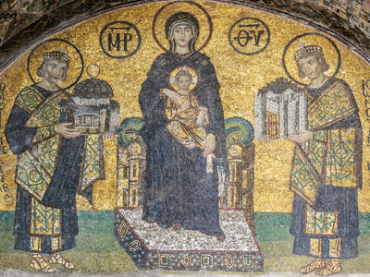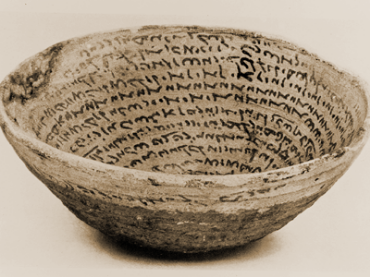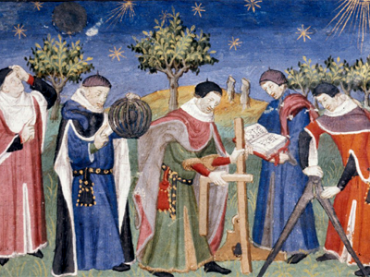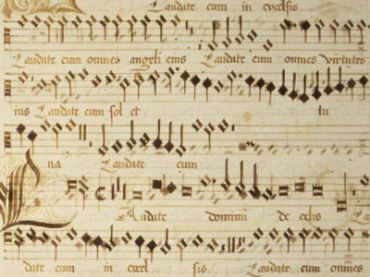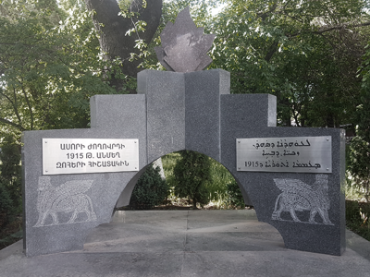History
The Origin of the Recessive Accent in Greek
Series: Analecta Gorgiana 327
ISBN: 978-1-60724-559-9
Maurice Bloomfield, a great authority on Sanskrit literature and comparative linguistics, applies the principles of linguistics to explain the recessive accent of Greek verbs in terms of Indo-European.
$39.00
On the Sentence-Question in Plautus and Terence
Series: Analecta Gorgiana 299
ISBN: 978-1-60724-561-2
Edward Parmalee Morris uses his intimate knowledge of the syntax of Plautus to address the conventions for understanding interrogative constructions in Latin sentences.
$57.00
On the Articular Infinitive in Polybius
Series: Analecta Gorgiana 300
ISBN: 978-1-60724-562-9
Hewlett explores the specific use of the Ancient Greek articular infinitive in Polybius.
$42.00
Servius on the Tropes and Figures of Vergil
Series: Analecta Gorgiana 304
ISBN: 978-1-60724-566-7
John Leverett Moore, in this doctoral thesis for Johns Hopkins University, examines the methods by which Servius organized his commentary on Virgil.
$44.00
Verbals in -tos in Sophocles
Series: Analecta Gorgiana 305
ISBN: 978-1-60724-567-4
Charles Bishop, whose life work revolved around the study of -teos adjectives in Greek and cognate forms in other Indo-European languages, examines the specific role of such adjectives in the plays of Sophocles.
$43.00
The Nomocanon of Abdisho of Nisibis
A Facsimile Edition of MS 64 from the Collection of the Church of the East in Trissur
Series: Syriac Manuscripts from Malabar 1
ISBN: 978-1-59333-968-5
This book is one of the most important sources for the canon law of the East-Syrian Church. In Canon I of the council held in the year 1318, this collection was proclaimed the authoritative canon law and has since retained its status as the binding legal collection of the East Syrian Church. This second edition reproduces the original manuscript in color.
$366.00
The Limitation of the Imperative in the Attic Orators
Series: Analecta Gorgiana 330
ISBN: 978-1-60724-588-9
Miller provides a systematic analysis of the ways in which Attic orators used the ancient Greek imperative.
$38.00
The Saturnian Metre
Series: Analecta Gorgiana 337
ISBN: 978-1-60724-591-9
Wallace Martin Lindsay addresses the still unresolved problem of Saturnian meter in early Latin poetry, presenting the case for the accent-based meter over the quantitative.
$44.00
New Suggestions on the Ciris
Series: Analecta Gorgiana 341
ISBN: 978-1-60724-595-7
Robinson Ellis reviews the debate surrounding the Ciris, an epic in miniature often attributed to Virgil, though never confirmed to be that poet's work.
$35.00
The Latin Prohibitive
By H. C. Elmer
Series: Analecta Gorgiana 342
ISBN: 978-1-60724-596-4
Prof. Elmer re-evaluates common misconceptions surrounding the use and meaning of the Latin prohibitive subjunctive.
$41.00
The Dramatic Satura and the Old Comedy at Rome
Series: Analecta Gorgiana 344
ISBN: 978-1-60724-598-8
Hendrickson suggests that Roman drama was a cross-pollination of Greek comedy with Roman satire.
$36.00
William Dwight Whitney
Series: Analecta Gorgiana 345
ISBN: 978-1-60724-599-5
Thomas Seymour's tribute on the death of William Dwight Whitney is a contemporary biography of this great scholar of linguistics.
$36.00
On the Old Armenian Version of Plato's Apology
Series: Analecta Gorgiana 346
ISBN: 978-1-60724-600-8
Frederick Coneybeare analyzes old Armenian codices of Plato's Apology in order to demonstrate the weakness of the chief codex used to support the Greek text.
$35.00
Establishment and Extension of the Law of Thurneysen and Havet
Series: Analecta Gorgiana 347
ISBN: 978-1-60724-601-5
Horton-Smith presents a defense of the Law of Thurneysen and Havet, which describes changes in Latin vowels during the 3rd and 2nd centuries BC.
$41.00
The Imperfect and the Aorist in Greek
Series: Analecta Gorgiana 348
ISBN: 978-1-60724-602-2
Prof. Miller provides an in-depth examination of the use and meaning of the Aorist and Imperfect tenses in Ancient Greek.
$40.00
On the Archaisms Noted by Servius in the Commentary to Vergil
By R. B. Steele
Series: Analecta Gorgiana 349
ISBN: 978-1-60724-603-9
Steele lists and discusses archaisms in Vergil's Aeneid that were used to reinforce the historical flavor of the epic.
$36.00
French Words in Wolfram von Eschenbach
By Leo Wiener
Series: Analecta Gorgiana 350
ISBN: 978-1-60724-604-6
Leo Wiener lists Wolfram von Eschenbach's use of French words in his German epic poems Parzival, Titurel, and Willehalm.
$38.00
Shakespeare, Burlesqued by Two Fellow-Dramatists
By Henry Wood
Series: Analecta Gorgiana 351
ISBN: 978-1-60724-605-3
Henry Wood discusses contemporary parodies and commentaries upon the works of Shakespeare in other dramatic productions.
$36.00
On the Western Text of the Acts as Evidenced by Chrysostom
Series: Analecta Gorgiana 354
ISBN: 978-1-60724-608-4
Frederick Coneybeare uses Armenian and Greek texts of Chrysostom's sermons on Acts to question and correct the core text in use by the Western church.
$38.00
Notes to the Dialogus de Oratoribus Based on Gudeman's Edition
By R. B. Steele
Series: Analecta Gorgiana 356
ISBN: 978-1-60724-610-7
Reading notes and commentary to Tacitus' Dialogus de oratoribus, a little-known yet key work in Tacitus' ouvre.
$35.00
The Origin of Latin Haud and Greek ou; And the Extensions of the Originally Unextended
Series: Analecta Gorgiana 357
ISBN: 978-1-60724-611-4
Horton-Smith offers an explanation for the negatives haud and ou in Latin and Greek respectively, suggesting a root word meaning "to fail."
$36.00
The Subjunctive in Independent Sentences in Plautus
By E. P. Morris
Series: Analecta Gorgiana 358
ISBN: 978-1-60724-612-1
A survey of the independent subjunctive in Plautus, resulting in an alternative set of rules for its use and application.
$49.00
A Pre-Varronian Chapter of Roman Literary History
Series: Analecta Gorgiana 331
ISBN: 978-1-60724-613-8
Prof. Hendrickson re-attributes works long thought to be that of Varro to other, less famous authors of the Late Roman Republic.
$36.00
Affirmative Final Clauses in the Latin Historians
By R. B. Steele
Series: Analecta Gorgiana 332
ISBN: 978-1-60724-614-5
R. B. Steele discusses the number of occurrences and some of the most noticeable examples of the different forms used by the Latin historians to express purpose, mostly those subjunctive clauses introduced by 'ut'.
$36.00
Servius and the Scholia of Daniel
By R. B. Steele
Series: Analecta Gorgiana 334
ISBN: 978-1-60724-616-9
Steele suggests a division in the longer edition of Servius' commentary on Vergil between Servius and the work of later commentators.
$40.00
Filter by
Filter by price
Filter by manufacturer

